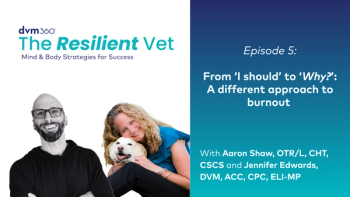
'Tis the Season for Stress
The demands of the holiday season might leave you feeling overly stressed and unable to enjoy the festivities. Use these seven tips to make sure the next few weeks are merry and bright.
The stockings are hung, the gifts are wrapped — and you’re barely holding it together. The holiday season is supposed to be a time of joy, but the compounding stress of buying the perfect presents, constant baking and traveling from party to party can be overwhelming. For veterinarians who manage their own practices, there is also the added pressure of
In a survey conducted by
However, with the right mindset and a few effective tips, you’ll be rocking around the Christmas tree again in no time.
1. Be Realistic.
It’s wonderful that you want to provide gifts for everyone you’re especially grateful for, but
If you say yes to every party request and continually volunteer to prepare menu items, you’ll start to resent the holiday season. Remind yourself that it’s OK to say no. And when you do carve out some downtime for yourself, use it wisely.
There’s no shame in leaning on others during the holidays. This is true both at home and at your veterinary practice. Make sure you’re delegating responsibilities to those who’ve offered (or you’ve hired) to help. This may include a friend who volunteered to bring side dishes for dinner or a veterinary associate who can complete administrative tasks you don’t have the bandwidth for. After all, even Santa has elves to help! And once you’ve relinquished a task, don’t spend time fretting over its outcome.
Trying to cram in holiday festivities on top of your regular responsibilities without a strategy will eventually result in burnout. Just as you schedule veterinary appointments throughout the day, create holiday-related time slots.
From late November until early January there is more than enough temptation to stray from your otherwise healthy eating habits. This is not to suggest you should skip hot chocolate or forgo a piece of pie, but “treats” should be treated as such.
.
This may sound too cliché to be helpful, but reframing your thoughts could have a constructive impact on your mood. When you’re standing in a never-ending line or navigating through a crowded parking lot to find a vacant spot it’s common to become bombarded with pessimistic thoughts.
Instead of going down a negative path, be mindful of your thoughts and steer them in a different direction. Self-talk can be extremely helpful in these situations, too. Remind yourself how much the recipients will light up when they receive the gifts you’re waiting to purchase. Or make note of how much you enjoy the holiday song playing on the radio.
A
Newsletter
From exam room tips to practice management insights, get trusted veterinary news delivered straight to your inbox—subscribe to dvm360.





